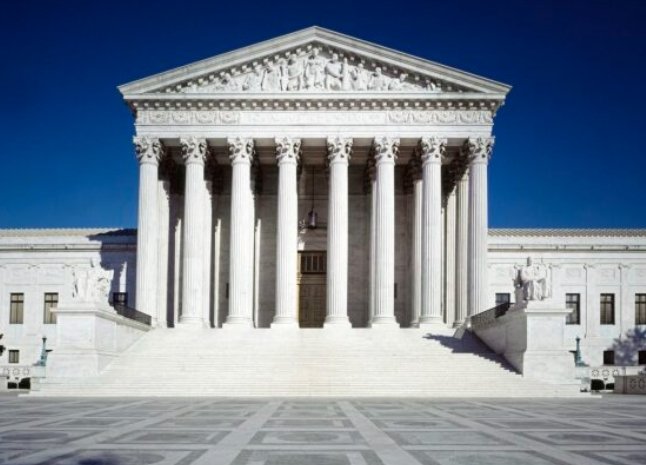The U.S. Supreme Court heard oral arguments on Thursday in a case that could determine whether former President Donald Trump can run for office again in 2024. The case, Trump v. Anderson, challenges a ruling by the Colorado Supreme Court that barred Trump from appearing on the state’s primary ballot under a provision of the 14th Amendment that disqualifies former officials who engaged in insurrection or rebellion.
The 14th Amendment and the Capitol attack
The case hinges on the interpretation of Section 3 of the 14th Amendment, which was enacted after the Civil War to prevent former Confederate officials from holding federal or state office. The provision states:
No person shall be a Senator or Representative in Congress, or elector of President and Vice President, or hold any office, civil or military, under the United States, or under any State, who, having previously taken an oath, as a member of Congress, or as an officer of the United States, or as a member of any State legislature, or as an executive or judicial officer of any State, to support the Constitution of the United States, shall have engaged in insurrection or rebellion against the same, or given aid or comfort to the enemies thereof. But Congress may by a vote of two-thirds of each House, remove such disability.
The Colorado Supreme Court ruled that Trump violated this provision by inciting the violent mob that stormed the U.S. Capitol on Jan. 6, 2021, in an attempt to overturn the results of the 2020 presidential election. The court said that Trump’s actions amounted to an insurrection or rebellion against the Constitution and the rule of law, and that he therefore forfeited his eligibility to hold any office under the United States or any state.
The arguments for and against Trump
Trump’s lawyers argued that the Colorado Supreme Court’s ruling was unconstitutional, unprecedented, and undemocratic. They claimed that Section 3 of the 14th Amendment does not apply to presidents, and that even if it did, Trump did not engage in insurrection or rebellion, but merely exercised his First Amendment rights to express his opinions and challenge the election results. They also argued that the Colorado court’s decision violated the rights of millions of voters who support Trump and want to see him on the ballot.

The lawyers representing the Colorado voters who sued to remove Trump from the ballot defended the state court’s ruling and urged the Supreme Court to uphold it. They argued that Section 3 of the 14th Amendment clearly applies to presidents, and that Trump’s conduct on Jan. 6 and the days leading up to it constituted a clear and grave threat to the Constitution and the peaceful transfer of power. They also argued that the Colorado court’s decision did not disenfranchise any voters, but rather enforced the constitutional qualifications for office.
The reactions of the justices
The Supreme Court justices, who heard the arguments via telephone due to the Covid-19 pandemic, appeared divided and skeptical of both sides’ arguments. Some of the conservative justices, such as Brett Kavanaugh and Amy Coney Barrett, questioned whether Section 3 of the 14th Amendment was intended to apply to presidents, and whether the Colorado court had the authority to make such a determination. They also expressed concern about the implications of allowing one state to disqualify a candidate for the entire nation, and the potential for partisan abuse of the provision.
Some of the liberal justices, such as Elena Kagan and Ketanji Brown Jackson, questioned whether Trump’s actions on Jan. 6 and the days leading up to it could be considered anything other than an insurrection or rebellion against the Constitution. They also pointed out that Section 3 of the 14th Amendment was designed to protect the nation from the dangers of disloyal officials, and that the Colorado court’s ruling was consistent with the historical and textual context of the provision.
The possible outcomes and impacts
The Supreme Court is expected to issue its decision in the case by June, before the 2024 primary season begins. The outcome could have significant implications for the 2024 presidential race and the future of American democracy. If the court rules in favor of Trump, he could continue his campaign and appear on the ballots of all 50 states, despite his role in the Capitol attack and his refusal to accept the 2020 election results. If the court rules against Trump, he could be barred from running for office again, unless Congress votes to remove his disability by a two-thirds majority of both houses, which is unlikely given the current political polarization. Alternatively, the court could avoid ruling on the merits of the case and dismiss it on procedural grounds, such as lack of standing or mootness, leaving the issue unresolved and open to further litigation.















